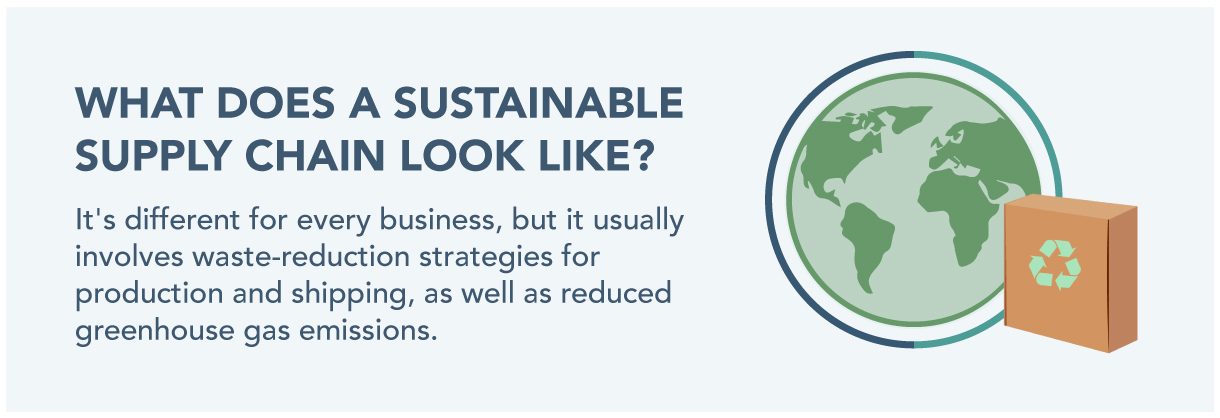It’s not just consumers voicing concerns about the environment and demanding better practices from the companies they give their money to. While you might think you’re off the hook because you’re in the business-to-business sector, B2B sustainability is on the rise.
Manufacturers, merchants, and servicers are calling other entities—especially those they have relationships with—to make changes like reducing their carbon footprints. Here’s what B2B companies need to know about sustainability.
 Sustainability and the Supply Chain
Sustainability and the Supply Chain
In the context of eco-friendly business operations, sustainability means meeting your organization’s needs and your client’s needs without impeding on the natural resources future generations may need. For many companies, it starts with the supply chain.
What does a sustainable supply chain look like? It’s different for every business, but it usually involves waste-reduction strategies for production and shipping, as well as reduced greenhouse gas emissions.
It can also mean minimizing the use of natural resources, like water, coal, oil, and natural gas. In turn, a sustainable B2B supply chain might use more renewable resources, such as wind energy, solar energy, and hydropower, as well as renewable materials, like bamboo, cork, and corn-derived plastic.
Sustainable Working Relationships
No matter the industry, product, or service, the fact of the matter is, companies rely on other companies. So, in order to have a truly sustainable supply chain, B2B businesses are partnering with suppliers and servicers working to uphold their own eco-friendly practices.
This is easier said than done, as your company may rely on specific vendors that haven’t caught up with your level of environmental consciousness. And if you’re transparent about your supply chain, your clients and investors will see not only your internal efforts but also have insight into who you’re working with. 
Having said that, remember that a business doesn’t become sustainable overnight. It’s a slow, continuous effort requiring you and those you’re associated with to take action to protect the planet.
B2B companies can lead the sustainability movement by example and encourage their partners to follow suit. Beyond that, you can focus on collaborating with organizations that align with your company values and long-term environmental goals.
Curious to learn more? Check out our work with Higg, a B2B sustainability tech company that needed a values-aligned partner to help build and execute a custom, data-driven digital marketing strategy.
Lessons from the Most Sustainable B2B Companies
Salesforce, a go-to for cloud-based software, is leading the way for B2B sustainability. The SaaS firm started Earthforce, a team of employees dedicated to raising awareness and volunteering to clean up the planet.
Then there’s Philips, which is both a B2B and B2C company. In the business-to-business realm, the manufacturer is focusing on making its product development practices comprehensively greener. This includes waste reduction efforts, decreasing the use of hazardous materials, energy conservation, and using eco-friendly packaging.
Flexis is another standout company many businesses lean on for product development, logistical support, and supply-chain solutions. The B2B firm’s most recent sustainability efforts include an e-waste program, reverse logistics, and solar tracking.
How to Work Sustainability into Your B2B Marketing Strategy
Sustainability is good for the planet—and it can also be good for business. If you’re interested in leveraging your eco-friendly efforts to build brand awareness and attract new clients, we’d love to hear from you. Get in touch with Mad Fish Digital to see how sustainability can be implemented into your digital marketing strategy.

